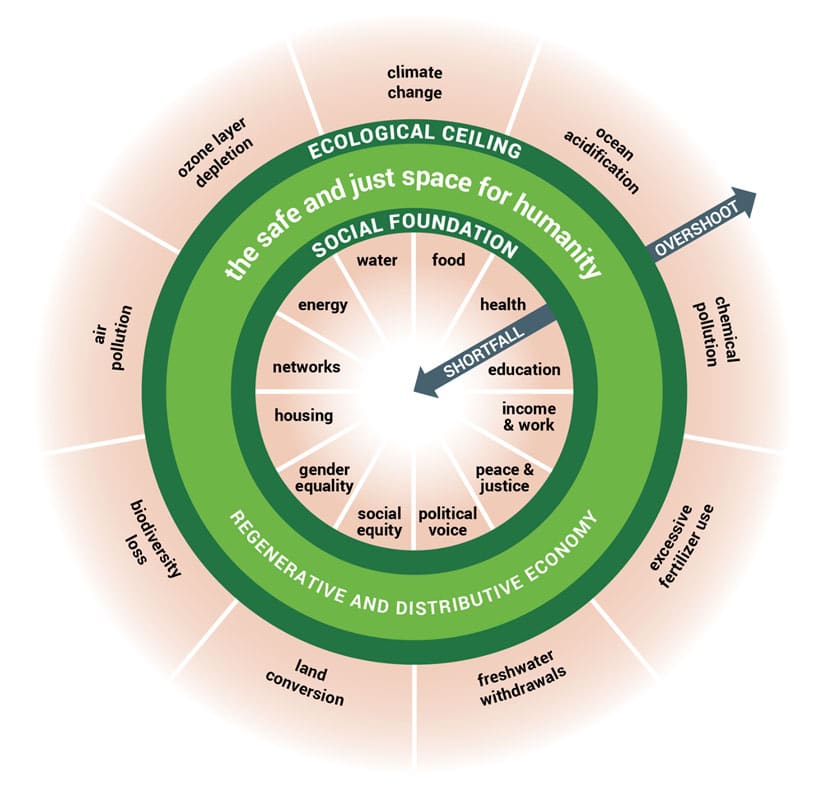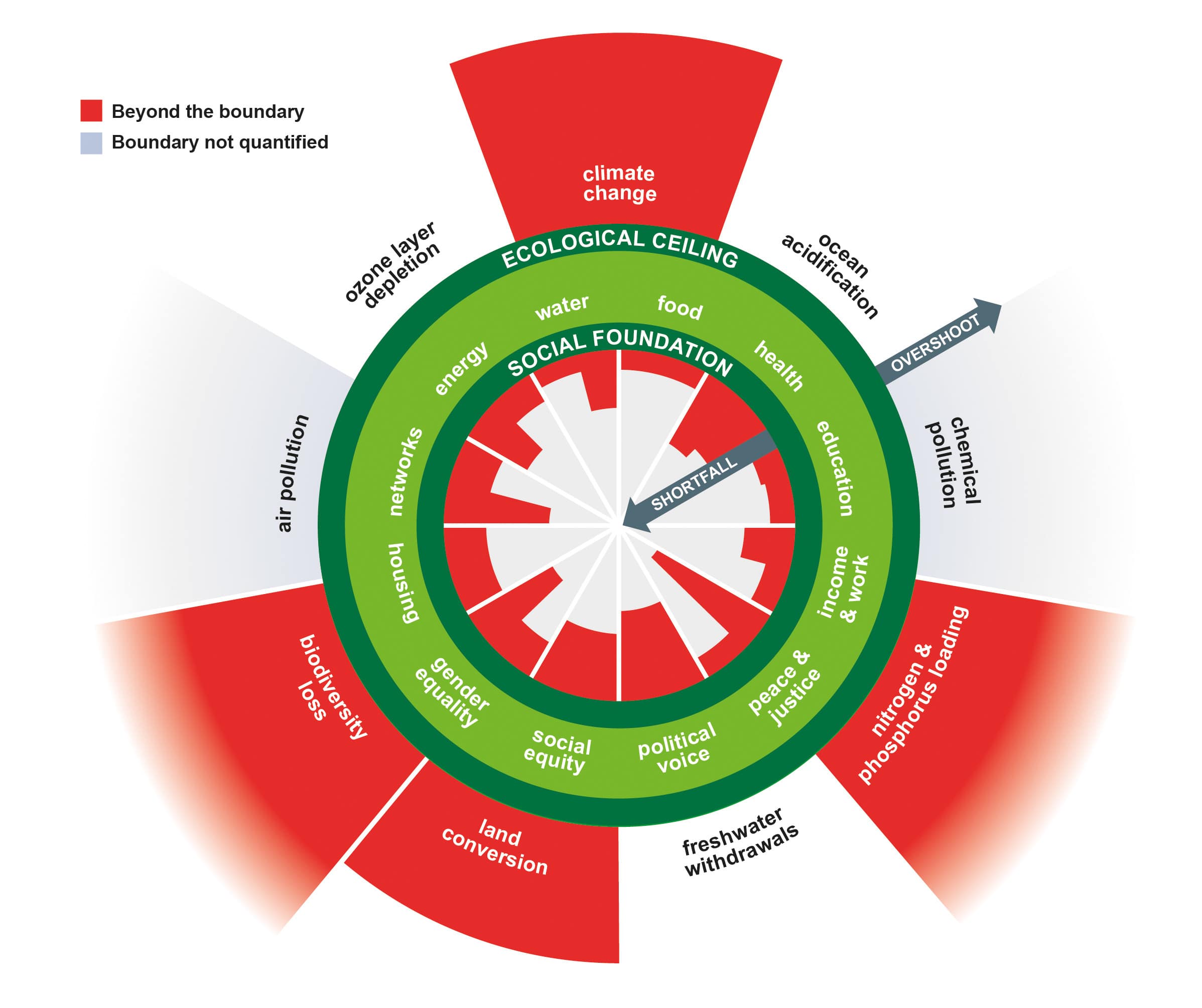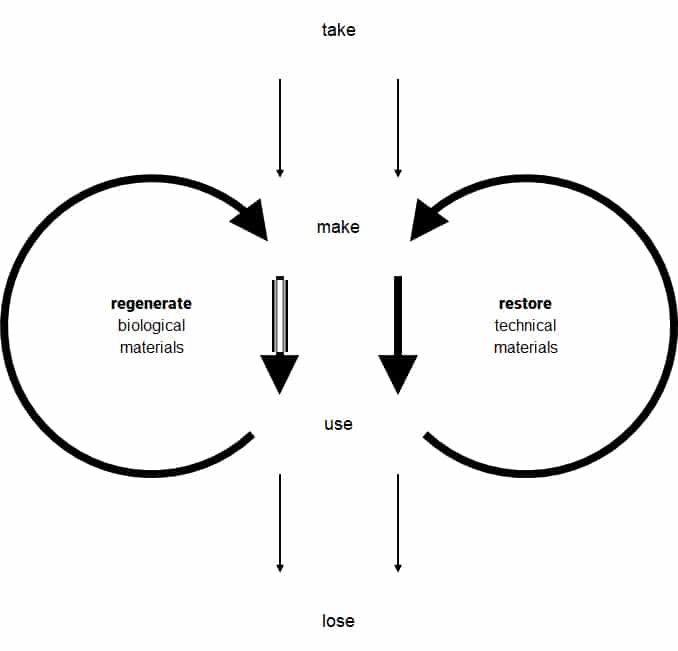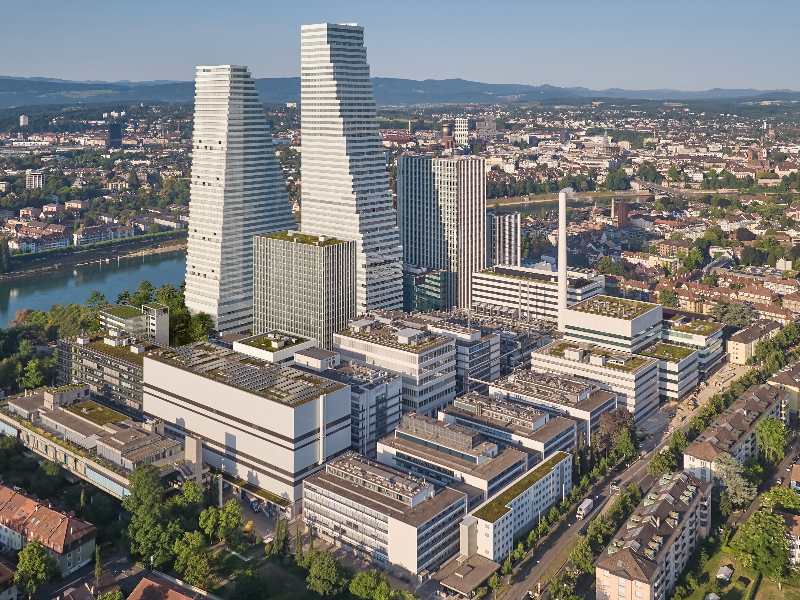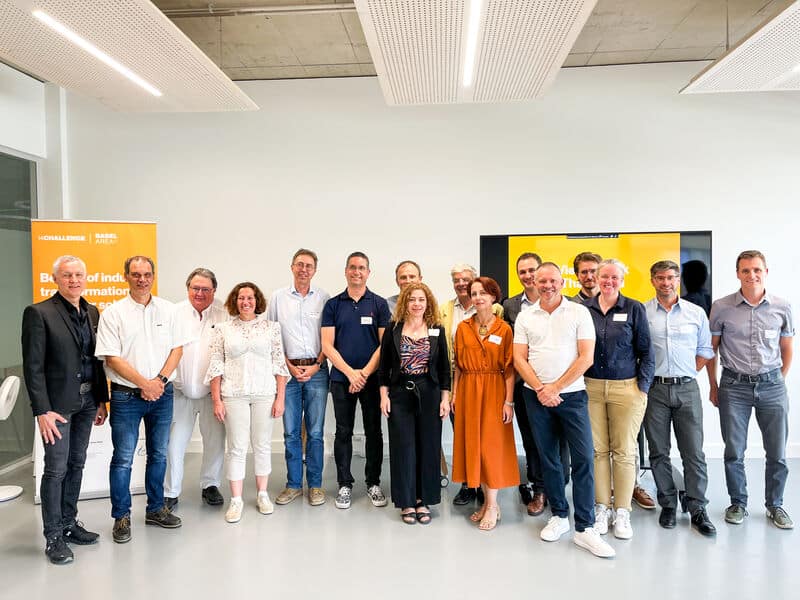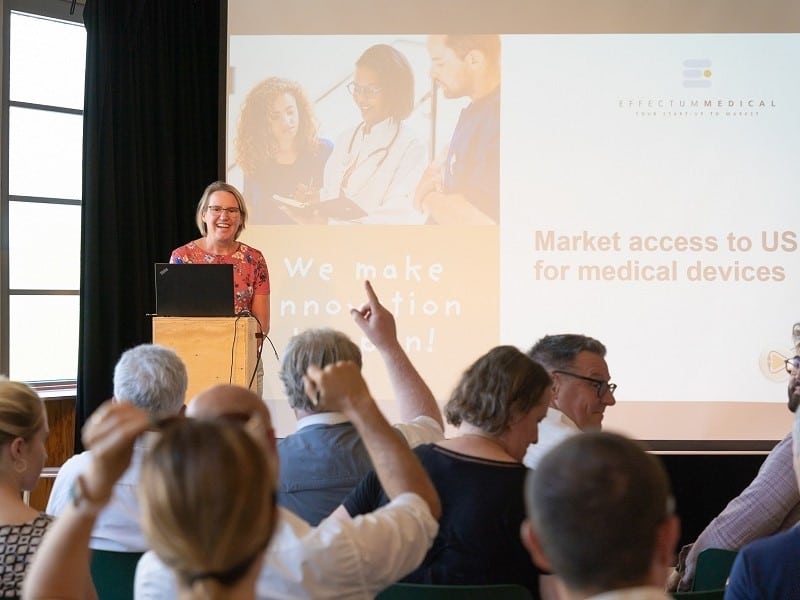
Why business design is key for a sustainable economy
How you can help fix the sustainability and innovation puzzle.
The economy is overshooting planetary boundaries – and companies play a crucial role to do better. Learn to define and reflect your business purpose and drive change in your ecosystem through innovation.
The summer of 2022 has shown again how our economies are intertwined with the natural boundaries our planet is providing us with. The heat waves and droughts, the energy nexus between drought, glacier melting and energy supply, as well as the resulting supply chain disruptions, made it clear to everybody: sustainability has become a game changer and strategic topic. In order to secure economic success, companies have to innovate and radically transform their business models and products.
At Basel Area Business & Innovation, we provide local businesses and entrepreneurs with stimuli, skills and networks to face this challenge as an opportunity rather than a threat. It is our mission to build an ecosystem, where entrepreneurs together with academia and corporations are working together in order to build the wealth of future generations, while staying within the planetary boundaries earth gives us. As a result, we have dedicated our networking event series to sustainability in business. Our speakers help startups and businesses on their journey to more sustainable business models.
This article introduces the Doughnut Economics model and summarizes the keynote by Erinch Sahan from the Doughnut Economics Action Lab (DEAL), held the 25th of August at the Impact Hub Basel.
Doughnut Economics as a model for a Regenerative Economy
We did not start the century off well. In 2008, we faced a financial meltdown. We saw floods and wildfires raging through various parts of the world. Moreover, just two years ago, we started fighting a worldwide pandemic.
”From crisis to climate breakdown to lockdown: We got the signs that something is fundamentally broken.
Erinch SahanBusiness & Entrepreneurship Lead - Doughnut Economics Action Lab (DEAL)
Unfortunately, there is no easy way out: We cannot just tweak our economy to get things straight. We have to change it at the deepest level. To achieve this, DEAL proposes a doughnut economy.
The inner circle depicts the social foundations, the sustainable development goals as defined by the United Nations (the social UN SDGs) we need to meet in order to sustain a healthy society. The outer circle depicts our non-negotiable planetary boundaries. We have to respect them, or we destroy our planet. Our economy should never expand beyond our planetary boundaries and neither contract below the social foundations. But… We are living far out of balance.
Fig.1. The Doughnut of social and planetary boundaries.
We collectively overshoot the majority of our planetary boundaries and fall short of our social foundations for around a billion people on the planet. The economic model that got us to where we are today will not get us any further.
Fig.2. Humanity is living far out of balance – overshooting in most boundaries.
We follow a degenerative model of production and consumption. We take from the earth, make something, use it and lose it as waste.
There are better models. Models that minimize waste and loss of energy and reuse materials. Those regenerative practices create an economy that works with and within the cycles of the living world.
Fig.3. Regenerative practices: An economy that works with and within the cycles of the living world.
Notable companies that work with regenerative practices are:
- Fairphone with its open modular design. As a result Fair phones are repairable and upgradeable without replacing the whole hardware.
- Body Shop with its recycling scheme. Minimizing the use of single-use packaging on a global scale.
- Houdini with its 100% recyclable garments.
There is a social side to this.
In order to achieve circularity and other goals related to our planetary boundaries, we also have to focus on the social side of the doughnut. Instead of maximizing value for a few, we have to follow distributive practices. This means sharing opportunity and value with all who co-create it.
Some best practices of companies pioneering in this aspect are:
- Employee ownership demonstrated by Richer Sounds, allowing the whole staff to benefit from business success.
- Community-focused tourism by FairBnB, that prevents gentrification.
- Fair Tax Mark by LUSH, certifying that the company focuses on efficiently paying taxes, rather than hiring an army of lawyers to optimize taxes.
While some of those transformations are gradually introduced through regulation, businesses and entrepreneurs can most effectively accelerate change. Unfortunately, we currently limit ourselves to practices that maximize margins and profits in the short term, missing many opportunities to create benefits for many in the long term.
What if we changed that model? What if we looked for viable solutions that had high enough margins to keep the business prosperous but don’t necessarily maximize those returns? We would get real solutions.
We need to get from “how much financial value can I extract from this business” to the desperately needed “how many benefits can we generate?”.
Fig.4. From degenerative and divisive to regenerative and distributive business models.
1. Purpose
Redefining a business’s purpose from making as much profit as possible to, for example, selling local, handcrafted goods and services that answer a need with minimal externalities. If a company only exists to raise the shareholder value, it needs to redefine its purpose of existence.
2. Networks
By focusing on our Supply chains, we can achieve a big leap forward. Favoring long-term partnerships with suppliers and joining progressive business networks like CE100, Fair Tax and Re100 builds trust and helps solving sustainability challenges together.
3. Governance
Focusing decision-making on social and ecological benefits instead of fast growth and big exits. Shifting to different management and organizational models like holocracy vs. hierarchy or custodianship vs. limited partnership.
4. Ownership
Implementing different forms of ownership like co-ops or steward-owned companies.
5. Finance
Prioritizing long-term, holistic growth and reinvestments for impact over quick financial growth.
This is an invitation for you to shape your business according to the doughnut economy. Choose the one planetary boundary or social foundation you can have the biggest impact on and use the five design layers to make a change.
Where do we go from here?
The Doughnut Economics Action Lab has developed a tool kit that supports companies to start their own journey to move into the doughnut. The tool kit is available as an open source license for selected partners. Together with Impact Hub Basel we will offer workshops using the tool kit. Do not miss the opportunity and let us inform you in our newsletter when we organize the first workshops.
After Erinch Sahan we had Robin Henri from Solar Impulse Foundation and Martin Studer from Swiss Triple Impact present their solutions. Learn more about their sustainability solution in the next blog.
Please find further readings and resources about a regenerative Economy in the following resources:
- Purpose Economy Booklet on Steward Ownership
- Exit to Community - a community primer
- Innovations in Financing Structures for Impact Enterprises: Spotlight on Latin America
- Repository of Alternative Financing Structures for Early-Stage Impact Investing
- Finance for a Regenerative World – John Fullerton
- Article on Doughnut Enterprise Design
- Video from Kate Raworth explaining how Doughnut Economics applies to business
